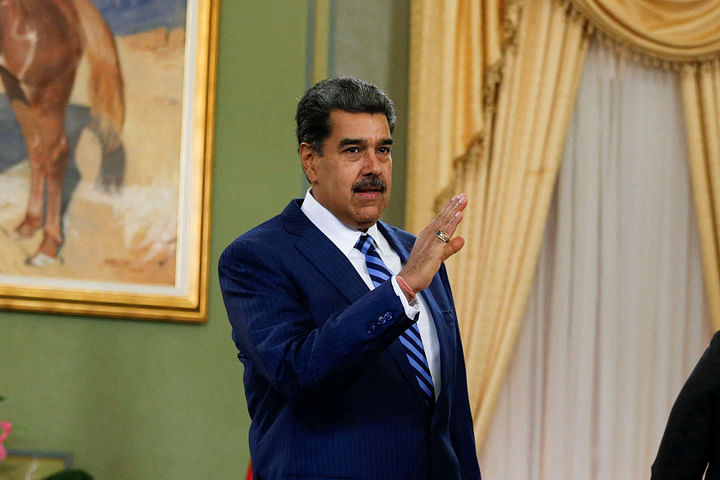Venezuela has been witnessing, for days, transformations with the partial lifting of US sanctions, the release of detainees, an agreement between the opposition and the government and the release of 3 billion dollars, in light of an acute political and economic crisis.
The country, whose GDP has shrunk by 80% in 10 years, has been facing extremely difficult situations since the re-election of President Nicolas Maduro in a disputed ballot in 2018, which led to the tightening of US sanctions on Venezuela.
After the negotiations between the authority and the opposition with the approach of the next presidential elections, in 2024, have been stalled since November 2022, the sudden agreement reached by the parties on Tuesday in Barbados triggered a series of reactions.
Oil
In a remarkable shift, Washington announced the resumption of allowing the purchase of Venezuelan crude, as well as gas and gold for six months, with the possibility of extending this permission if the political situation is considered satisfactory.
This decision will give a boost to Caracas, as it will enable it to obtain oil revenues “without going through the black market,” according to Francisco Monaldi, an expert at the Baker Institute.
“This is not an easy thing,” said oil economist Francisco Rodriguez, noting that Venezuela’s creditors may seek to get their hands on exports.
Luis Angarita, an international law expert, said:” even if there is nothing final, the lifting of the temporary ban is a very important step, because it reflects progress that makes it very expensive to go back”.
Primary elections
The opposition, which has been divided for years, is holding preliminary elections on Sunday to nominate its candidate for the next elections in the face of Maduro, who succeeded Hugo Chavez in 2013 and aspires for a new term.
According to the Barbados agreement, the government will not interfere in the primaries, which are organized with a degree of improvisation after months of procrastination and hesitation within the opposition and the obstacles that the government was accused of provoking.
The real problem is that most of the candidates, including 56-year-old Maria Corina Machado, the radical opposition leader at the top of the polls, were deemed ineligible to run.
This is one of the main points of disagreement between the authorities and the opposition, and the US State Department warned that it may prevent the full lifting of sanctions.
Detainees
Caracas on Wednesday released 5 Political Detainees a few hours after the announcement of the easing of sanctions, including former MP Juan Requesens and journalist Roland carinho, who have been detained since 2018 and 2020.
This seemed to be a gesture of goodwill in a country accused of human rights violations, where at the end of August Amnesty International denounced the”arbitrary arrests for political motives”, considering about 300 detainees as political detainees.
Following the agreement, the United Nations announced on Thursday the creation of a fund worth 3 billion dollars from Venezuelan accounts held abroad, to be allocated for social expenses in Venezuela.
The fund was a point of contention between the parties, as the Maduro government stipulated that this amount be “returned” to it in order to return to the negotiating table, while the opposition insisted that the United Nations oversee it.
American realism
Analysts believe that the US decision falls within the context of pressure on crude oil sources amid tension in the Middle East and the war in Ukraine, while a diplomatic source said that Washington is showing a measure of “realpolitik” towards Caracas.
“The Barbados agreement is not much different from the agreements put forward or signed by the Maduro government in recent years,”added Francisco Rodriguez.
Angarita pointed out that Washington needs to diversify its oil sources in the long term, and Venezuela has reserves of the largest in the world and is very close geographically to the United States.
Although the years of the embargo have changed the situation a little, the Venezuelan economy is historically heading to the American giant, and this country is still economically looking forward to the revival of relations with the United States.


















